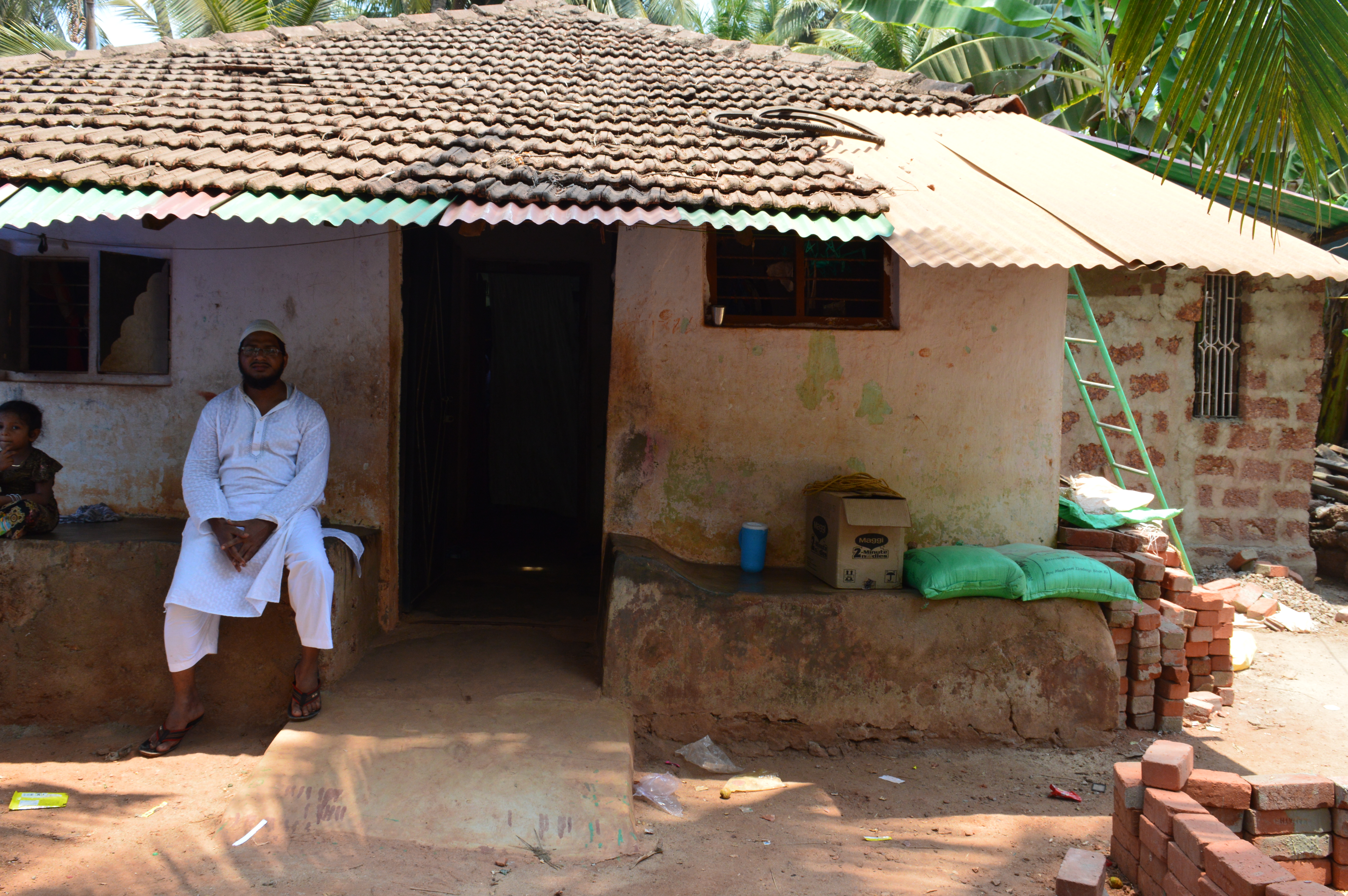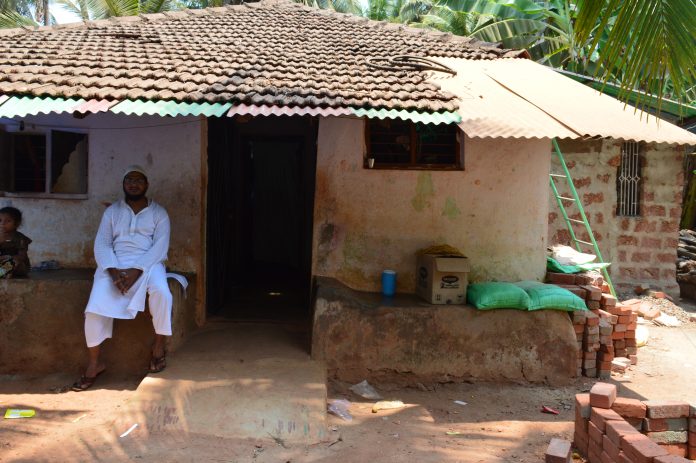Mention the name Bhatkal and the first thing that mainstream media will suggest is the coastal town’s association with terrorism. Over the past decade, numerous media houses have spent a lot of ink trying to ‘understand’, ‘explain’ and in some cases, even ‘reveal’ the causes behind the connection between terrorism and Bhatkal. In April 2017, the same media maintained a stoic silence when Shabbir Gangawali was acquitted of all charges and released. In this nine-part series, Amit Kumar looks at how Gangawali was framed; how three residents of Bhatkal were picked up in the most controversial fashion with little proof to substantiate the claims of the Police, how the vilification of a peaceful town has affected its residents and how beyond the image created by the media, a society that is rich in tradition and education continues to flourish. Here is the first part, the story of Gangawali’s redemption.
For Shabbir Gangawali, now 35, November 2008 was a time of exploring new pastures. After teaching and leading prayers at a Mosque in Mangalore for a few years, he had landed up in Pune to become an Imam. The money was barely sufficient, but this is all Shabbir, who had completed his Faziliat (equivalent to Masters) from Lucknow, knew: he would eat at his elder sister’s place and sleep at the mosque, which was thankfully next door. He was 27, and all he wanted to do was to save some money to send to his mother, who lived alone in Bhatkal, Karnataka. Little did he know that far from sending money to her, he would get to see her only once over the next eight-and-a-half years.

The last week of November 2008 was a tense period for residents of the entire country. On November 26, Pakistani terrorists had wrecked havoc in Mumbai, killing over 150 people and injuring hundreds. Shabbir had been following the news too. On November 30, in the middle of the night, he was woken up by his sister’s husband. “I was told that more than 20 people had come to arrest me. I was petrified, scared, but knew that I could do nothing else but go with them. All of them were in civil uniform, and on first impressions, it became clear that it was not the local police,” says Shabbir recounting the night.
We meet Shabbir at his home in Maqdoom Colony, Bhatkal. It does not take long to figure out that his home is need of dire repairs: the roof is just about managing to hold on, but the walls are in various stages of decay. A small fan sits precociously: bolted to a thick wooden plank that runs along the sidewalls, a mere foot above our heads. Inside, his mother sits quietly.
To the residents of Bhatkal, it has become pretty clear over the past decade that if cops land up in the middle of the night, it is almost certain that there is a terror angle involved. “It did not take me long to figure out that I, a Maulavi from Bhatkal, was arrested from a mosque in Pune so of course, I was to be presented as a ‘bada atankwadi’ (big terrorist), says Shabbir. While using the term ‘Bada atankwadi’, Shabbir uses his hands to draw an imaginary giant; in his imagination, maybe that is how a big terrorist looks.
The next day, the media flashed the news of Shabbir’s arrest. Recalling the day, the editor of a local news website says, “Every news channel seemed to be trying to outdo each other in trying to prove just how dangerous Shabbir was. It was a field day for them and for the police this was a way to show how they had acted swiftly against the attacks in Mumbai.”

According to Shabbir, he was kept in the outskirts of Pune by the ATS and tortured almost daily. When asked where, he merely says, “Idhar maara, idhar maara, idhar bhi maara,” ({They} beat me here, here, and here too) pointing to different parts of his body: head, legs (sole), knees, private parts. There is no sadness, no anger when he narrates how he would be hung upside down and asked to reveal information on Bhatkal’s most ‘notorious export’: Mohammed Ahmed Siddibapa alias Yasin Bhatkal.
While the name of Yasin has almost single-handedly ‘elevated’ Bhatkal to notoriety, the editor says this is another example of how the media laps up everything that the Police says as gospel truth. “Take the example of Riyaz Bhatkal. He was born and brought up in Mumbai, and should be considered as a resident of Mumbai for all intents and purposes. His mother is from Bhatkal but no one who lived in Bhatkal ever met him. But the media makes it seem like he was some leader of the city who went about poisoning young minds. Siddibapa lived in Dubai. Hardly anyone knew him here. What is the Bhatkal connection here exactly?”
Shabbir continued to be illegally detained for over a month before he was ‘officially’ arrested. In the charge sheet, he was accused of owning fake currency which was allegedly supplied to him by Yasin Bhatkal for financing terror plans. “The shame it brought to my family (of being called a terrorist) especially to my sisters living in Pune, was unimaginable. Both my sisters’ husbands’ were also detained for the first two days, like they were some sort of collateral, and were also beaten up. They were so shocked after the incident that they barely contacted me ever after that. But can I blame them?” asks Shabbir.
According to the charge sheet, Shabbir was in possession of Rs 25,000–250 notes of Rs 100 each–at the time of arrest, even though initially the police said that he was caught with one fake note of Rs 500. However, as is often the case, it was not until a year later, in June 2010, that the trial in the fake currency case started. In short, he had spent over 18 months in jail even before the trial began. But 2010 proved to be a challenging year.
In February, blasts outside German Bakery in Pune killed 18 and injured over 54 people, while in April, blasts outside the Chinnaswamy Stadium in Bangalore injured 15 people. The police, as expected, pointed the fingers at Indian Mujahideen, and Yasin and Reyaz Bhatkal, and even tried, unsuccessfully, to frame Shabbir in the Chinnaswamy case. “I was in jail when the blasts took place. In fact, I had been in jail for over a year when the incidents occurred, but somehow they tried to frame me. Thankfully, the court understood the same and my name was discharged from the case,” he said.
Even this did not bring an end to Shabbir’s pains. On June 14, 2010, another case was filed against Shabbir under sections of the UAPA for allegedly supplying “jihadi literature” to the members of banned SIMI outfit in Mangalore. The Karnataka ATS alleged that the duo circulated “jihadi literature” among the youths and had indoctrinated them into “jihadi ideology.”
In November 2011, additional Sessions Court in Pune found Shabbir guilty in the fake currency case and sentenced him to five years of rigorous imprisonment based on the testimony of one police officer. Since he had already spent 3.5 years in jail, he was to serve one and a half years more, but the last six months of his jail term were waived off for his good behaviour.
With the Pune fake currency over, Shabbir was moved back to Karnataka to Mangalore jail for the case of distributing “Jihadi literature.” Talking about his days in Mangalore, Shabbir says, “I used to work in a mosque and teach the children too. To this day, I do not know what they mean by Jihadi literature. And to make it worse for me, they denied me bail at every point saying I was a threat.”
In 2016, of the seven arrested in the same case, four were released on bail. Shabbir, however, was denied bail again following which his lawyers appealed to the Supreme Court for his bail and argued there was no evidence against him. The Apex Court directed the Karnataka High court and Mangalore District and Sessions Court to give a judgement within a year, and finally, in April 2017, Shabbir along with three others was acquitted of all charges.
After release, the struggle for rehabilitation
Shabbir finally walked out a free man on April 10, 2017, nine years after his illegal detention. “The world seems scarier now,” Shabbir says. He admits that his failure to take care of his mother, who lost vision in one eye, will forever haunt him. “My siblings took her care to the best of their abilities, but I should have been here and I wasn’t,” he says. He says that although he has been out, it feels even more suffocating at times.
“Even people who have known me for years approach me with caution. Some shake hands, others wave from a distance, the rest will not even acknowledge me,” he says. He added that even officials of Majis-e-Islah-Wa-Tanzeem, the main social organisation in Bhatkal, had not visited him. When we questioned the Tanzeem officials about why they had refused to even meet him let alone help his rehabilitation, the official said, “He has just come out. We will discuss his plight in the next meeting,” and refused to get into details.
But more than the society’s reaction, what is troubling Shabbir the most is how he will find a source of income. “Who will give me a job? My dream has always been to teach kids, but even in Bhatkal, I have not really felt like people trust me. Sure, they come and say nice things but deep inside they do not want to take the risk of employing me,” he says. “The verdict might still be challenged in High Court, so we never know,” he says. “All I want to do is start a normal life again. But as of now, I do not know the way to a normal life,” he says.


